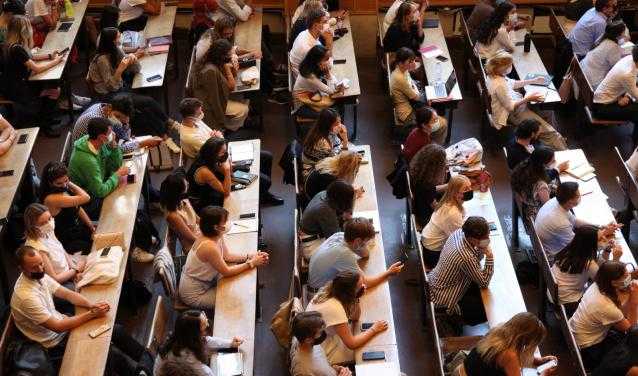Home>PSIA’s 10th Inaugural Address: Reassessing the Human Value of Economic Growth

14.09.2021
PSIA’s 10th Inaugural Address: Reassessing the Human Value of Economic Growth
With PSIA marking its 10-year anniversary, the distinguished Olivier de Schutter, UN Special Rapporteur on Extreme Poverty and Human Rights, was warmly welcomed to take the floor at this year’s Inaugural Address on September 1st, 2021.
Introduced by Mark Maloney, the acting Dean of PSIA, Dr. de Schutter delivered his lecture, “Prosperity without Growth? Building Back Better after the Crisis” that questioned the necessity of growth as a solution to economic crises while examining alternative paths.
The Triple Crisis of Growth

Reimagining our conceptualization of inclusive growth to better serve diverse socio-economic groups can more sustainably prevent response to crises that has been repeatedly characterized as extractive and reflective of zero-sum reasoning. Since the 1970s Oil Crisis, we have been in a short-term response mode, where increased competition between countries has rapidly encouraged a need to attract capital at the cost of unevenly distributed financial burden. With growth advantaging more vocal groups, silenced inequalities have found an outlet through the rise of populist movements, whose interlinkage has created a collective instability driving new crises, de Schutter noted.
Dr. de Schutter went on to emphasize that while poverty has decreased, our current measurement for what this constitutes does not provide a full picture of the destitution of modernized poverty, that is, living above a state-set measure but below a point from which one can accumulate wealth. Linking this analysis to the ecological crisis, de Schutter highlighted that “resources in highly unequal society will satisfy the richest groups because markets respond to demand and not needs. This is inefficient and why we are not good at addressing the ecological crisis.”
Finding a Way Out
1. Creating a Just Response
Reflected in de Schutter’s UN General Assembly report on the “just transition” that describes the complementarity between the ecological and social transition, de Schutter noted how we need to “think of measures that can produce a triple dividend.” This is described as “not only lowering the environmental impact but also creating jobs” and “ensuring that low-income families have access to goods and services to live a decent life.” A programme to insulate buildings, for example, encompasses these characteristics.
2. Rejuvenating Democracy
De Schutter declared that the rising trends of individualism and growing distrust in political processes reflect the disconnect in our civil fabric and unveil the need for greater citizen participation. “If people participate in shaping decisions, they will be more audacious than politicians themselves: the more you participate, the more you seek information and the more you are ready to be part of the change,” de Schutter claimed. Participatory mechanisms act to improve the legitimacy of measures that evolve social norms.
3. Achieving Coherence Between Domestic Transitions and International Regimes
In de Schutter’s book, “Trade in the Service of Sustainable Development,” the UN Special Rapporteur argues for a more humane globalisation through ensuring transnational cooperation by due diligence in supply chains and multinational groups. If we “make access to the market conditional upon labor rights to be complied with and upon exporting countries committing to certain multilateral agreements,” de Schutter states, “we can leverage trade as a tool for sustainable development” instead of compensating for its disadvantages.
Concluding remarks
De Schutter reinstated his message of how reshaping growth does not need to degrade globalization into a zero-sum game. When rebounding from economic crises, more sustainable alternatives that build upon considerations of social inequality reduction, ecological transition and democratic inclusion together can contribute to this new model.
“We purely pursue GDP growth, and have been for many years, with this as an indicator that does not meet all of the needs of the population. We need a different type of growth, however that does not cross the boundary in degrowth. We need to move away from growth as usual,” he concluded.
Learn more:
- The Paris School of International Affairs (PSIA)
- Discover the schedule of all our inaugural lectures
- Subscribe to our newsletter
Written by Miroslava Kovacova of The Paris Globalist. Photo credits by Jiya Dhillon.
Miroslava is a recent Sciences Po PSIA graduate in International Public Management with a focus on Africa and Diplomacy. Contributing to The Paris Globalist since September 2020 as the Managing Editor, Miroslava has a keen interest in peace mediation, humanitarian action and security challenges. She aims to contribute to building bridges between global and local practices towards more effective and ethical development.